News
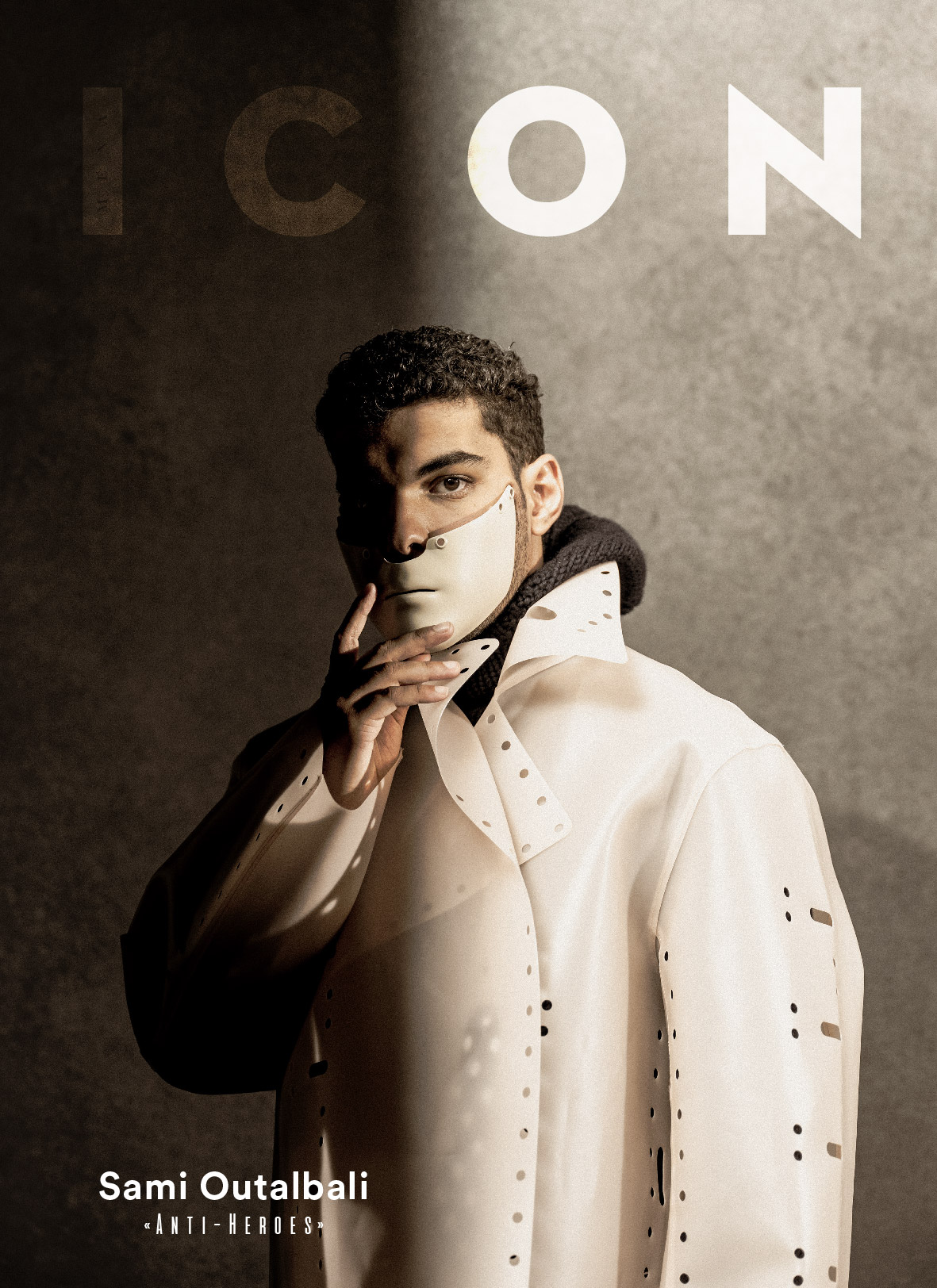
Sami Outalbali exudes an effortless charisma as he paces in his sun-drenched Parisian apartment. Dressed in a grey sweater, and casually snacking on grapes, he comes across as refreshingly genuine. This didn’t feel like a typical cover interview; it felt more like catching up with an old friend. Sharing the same name definitely paved the way for a starting point in our conversation.
Scheduling this rendezvous, however, proved challenging, given Outalbali’s packed itinerary. He’s currently immersed in his latest project – a comedy set in southern France where he plays a young lawyer navigating the choppy waters of family dynamics during a holiday gathering. It’s a role that demands both levity and gravitas, a balance Outalbali seems to strike with ease.
When asked about his genre preferences, between comedy and drama, Outalbali’s response is enthusiastic. “I always enjoy working, no matter the subject of the movie. I love my job so much that I enjoy everything that I do.” This passion for his craft has propelled Outalbali through a diverse array of roles in both television and cinema.
And he has indeed been doing it all. A cursory glance at his IMDb page reveals a man in constant motion, with at least one credit per year for the past six years, seamlessly transitioning between television and film across various genres. Which medium does he prefer? “Both,” he says. “I think my balance point is really between both. I filmed a TV show last year. When I finish the movie I’m doing now, I’m going back to doing a show. That’s how my year works, essentially.” He pauses, contemplating the future. “Maybe one day I’ll feel like for a year I only want to do TV shows, and then maybe the next year it’s gonna shift and I will want to only do movies. I couldn’t choose between them because I would feel like it’s just shutting doors to good stories.”
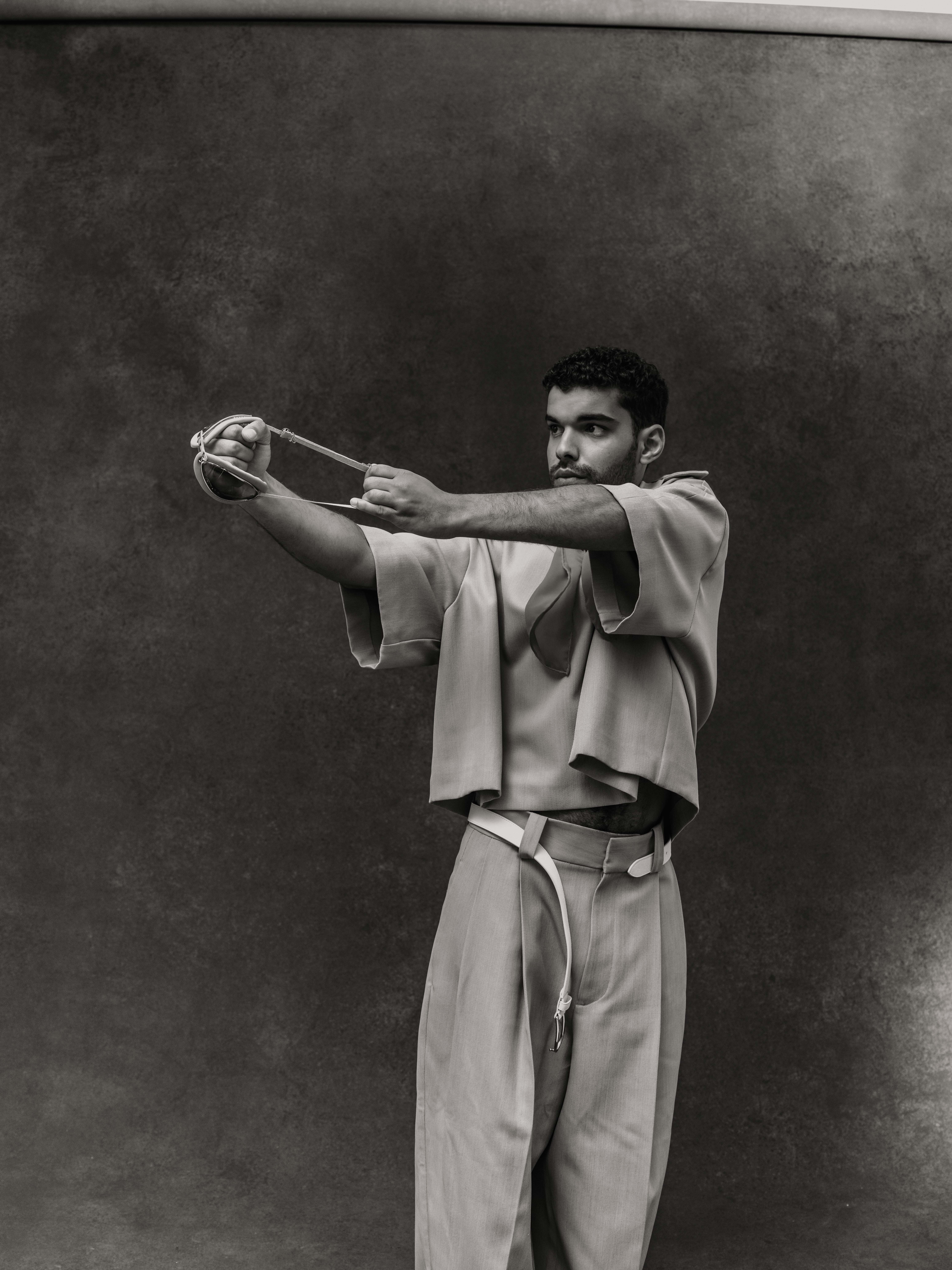
While Sami’s star may shine brightly in France, international audiences might recognise him from his breakout English-speaking role as Rahim Harrak in Netflix’s hit series “Sex Education”. His character’s introduction in the second season is quite memorable – striding confidently down a hallway as Eric (played by Ncuti Gatwa) describes him as “the hottest man alive.” It’s a description that easily applies to Sami himself, though he’s charmingly self-deprecating about the scene.
“The idea was to walk through that corridor really confident, and I tried my best. I’m not really like that in my personal life. At least I don’t feel like it, but it’s worked! The music in the scene helped.” I muse on wishing we had that in real life, he agrees. “We should have those moments. We should have an app built-in so that you press the button just to make a good entrance and then it takes over the stereos in the room and plays your song in a slow-motion moment.”
Rahim is introduced as an exchange student from France, his ethnicity initially ambiguous. However, the character’s name and a reference to him as “the son of a Middle Eastern prince” suggest that he is likely of Arab descent. “Sex Education” stands out for its beautiful representation of various personal identities and ethnicities, which inspired Sami as a fan of the first season before joining the cast in season two.
“Representation is always a strange thing to ask for. I feel like we, or at least I, have been raised in the mindset of not making too much wave and just taking the little space that people would give you. What’s beautiful right now in the times we’re living in is that everyone is getting more confident about asking for a bigger place at the table and taking more space in the world. It’s so beautiful. And I feel like Rahim was a way for me also to say ‘I’m here’. [Rahim] helped me since then to be more confident about myself and the things I want.”
The versatility of Sami’s craft became even more apparent when he played Ahmed in ‘A Tale of Love and Desire’ shortly after his portrayal of the confident and self-assured Rahim. Unlike Rahim, Ahmed has a conservative approach to love and intimacy; he is shy and introverted. However, Sami sees a connection between these two characters. “They just both embodied something else in masculinity in general. And that’s what I loved about those two characters. They represent two types of masculinity.”
His role as Ahmed would go on to grant him a nomination for the Cesar Awards in the Most Promising Actor category, another nomination for the Lumières Awards in the “Best Male Revelation” category, and a win for Best Actor in the Angoulême Francophone Film Festival. The film, directed by Tunisian filmmaker Leyla Bouzidabout, follows Ahmed who discovers a corpus of sensual and erotic Arabic literature he never imagined existed upon meeting Farah, played by Tunisian actress Zbeida Belhajamor.
There’s a fascinating parallel between Ahmed’s storyline and Sami’s own journey, both deeply influenced by literature. Born and raised in France, Sami first absorbed the French perspective on history, but it was when he picked up “The Crusades Through Arab Eyes” by Amin Maalouf that he began to uncover “the other truth” through, well… Arab eyes.
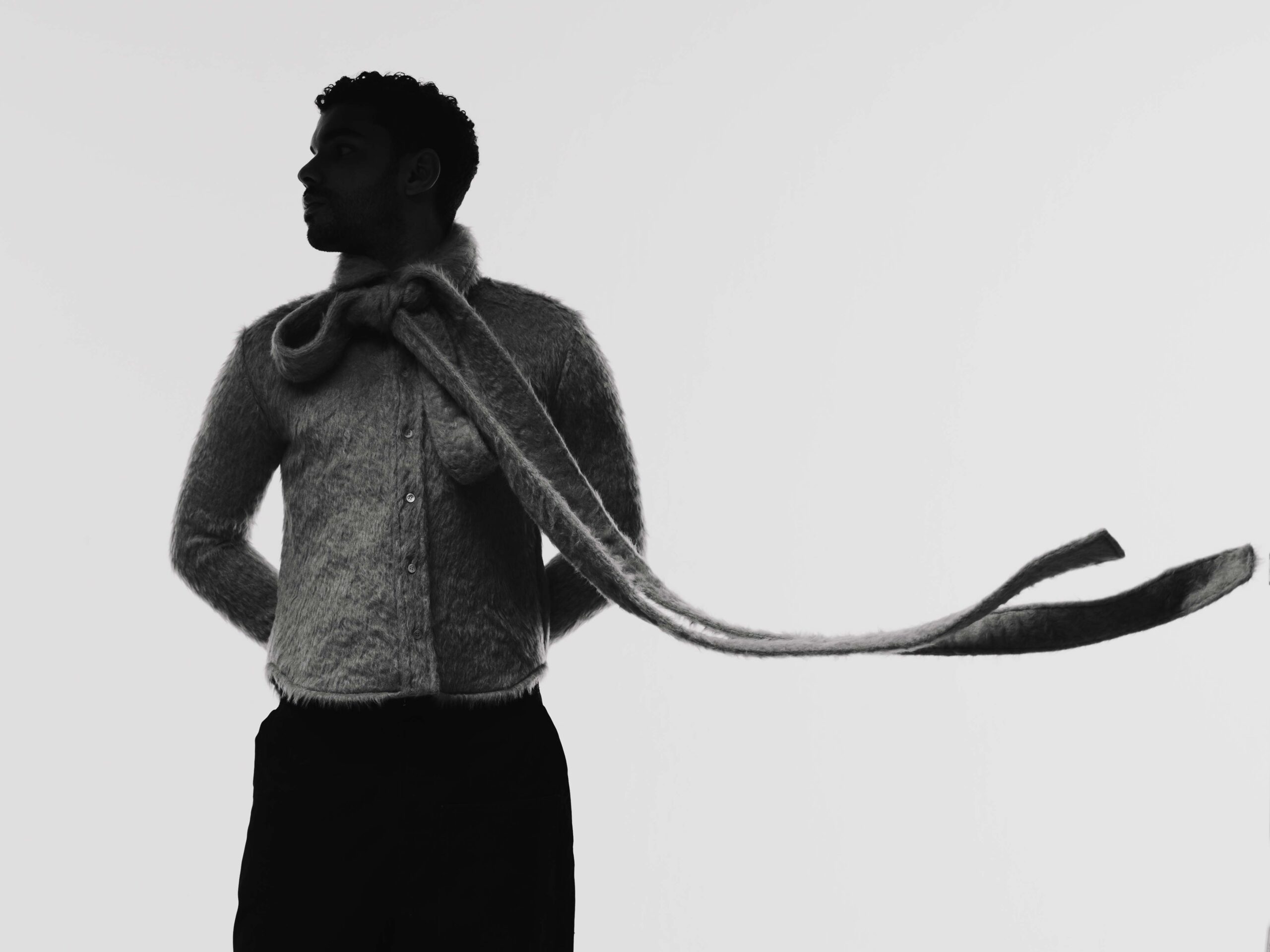
This experience led Sami to read nearly all of Amin Maalouf’s works, solidifying the Lebanese-French writer as his all-time favourite. Among them, “Leo Africanus” stands out as Sami’s (and his mother’s) favourite book by the author. He tells me he’s currently “re-re-re-re-reading” it—yes, he actually said that four times.
Sami had the incredible opportunity to read an excerpt from “Leo Africanus” in front of Maalouf himself during a TV show. While they often say not to meet your heroes, this encounter defied that notion. The two met backstage after the show, where Maalouf signed a copy of the book as a gift for Sami’s mother, whose birthday happened to be on that day. Talk about the best gift ever!
I tell him that my favourite book of all time is “The Disoriented” by Maalouf. It turns out that Sami and I share more than just our names. “Do I have it here?” he asks, rushing to his bookshelf to look for it. As he scans the spines, I catch glimpses of other Maalouf titles: “Samarkand”, “The Rock of Tanios”, and “Origins”.
I notice that all the books he shows me are vintage with yellowing pages, so I ask if they were thrifted or passed down. “I got them from my mum,” he replies. “My mum introduced me to Amin Maalouf. I hated reading in school because they forced us to read things. I didn’t like being told what to read, but as I grew older, I found that reading helped me sleep and calmed my mind, and I wanted to read more.” Driven by that desire, Sami explored his mum’s library, where she handed him The Crusades. It was the first book he read by Maalouf, and it was nothing short of eye-opening. “I realised I didn’t know anything about that period of history, especially not from our point of view, because as I grew up in France I had it from another perspective.”
Growing up in France to a Moroccan father and a French-Guadeloupean mother, Sami embraced a rich blend of cultures. Much like the protagonist in “Leo Africanus”, he had to navigate the complexities of cultural identity and the challenge of reconciling different connections to his heritage. His connection to Morocco, however, came about a bit later in life.
“I visited Morocco with my family really late. I think I was 14. I don’t speak Arabic because I didn’t want to learn. But then when I grew up, I started going more and more and now I’m in Morocco at least two or three times a year because it’s one of the places where I feel the best in the world. I feel like time is mine in Morocco.”
Sami is particularly fond of Marrakesh, despite his family hailing from Fez and Casablanca. “There’s something peaceful about my country even though I was not born there. I go there whenever I have this need to reconnect with myself and find peace again,” he reflects. “But I think it comes also from the fact that I didn’t grow up with it when I was a kid. I’m trying to gain back the time that I didn’t spend there when I was a kid. I’m taking it now as an adult.”
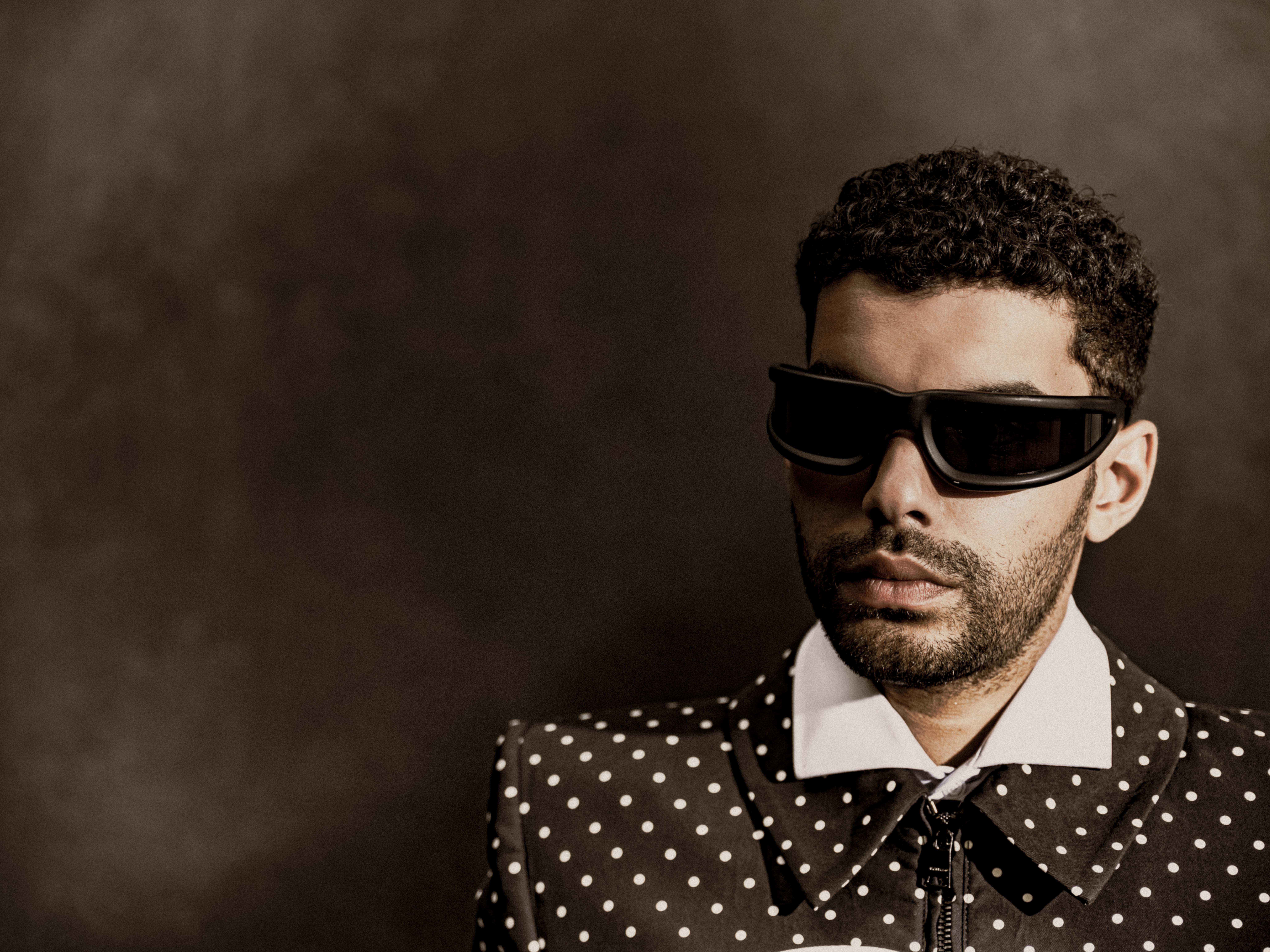
This reconnection and rediscovery of his origins inspired Sami to seek out stories that deserve to be told on screen. He has often shared in interviews his desire to delve deeper into his roots through acting, noting that the history of his ancestors is frequently overlooked, particularly when discussing eras before the 1970s, as if it never existed. When I ask which stories resonate with him, he responds, “I have a lot of things in mind.” He refers to the role he was preparing for in a show called “Fiertés” meaning Pride in English — he dove into the stories of Arabs in France as part of his character study.
“I was looking into different stories of different people—the few that I could find. I learned about the tragic lives of Arabs who came to work because France called for workers after the war at the beginning of the 60s. My grandparents came for that.”
Sami further explains that among those present were individuals with diverse identities that were criminalised during that time. “The stories of those individuals are tragic – they’re heartbreaking to the max,” he says. “They were guilty twice.”

Sami recognises the pressing need for these stories to be told in order to build bridges and foster understanding between cultures. “When you look at an old French movie—a big production with costumes and castles—if you’re a foreigner, you might think, ‘Oh, okay, this helps me learn more about that culture.’”
“Racism comes from fear. Fear comes from a lack of knowledge. We live in a wonderful time right now because we are becoming more open, and those ideas are beginning to be heard.”
If we have a history so rich in stories—which we do as Arabs—then we have a wealth of material to draw from for scripts. Okay, first step achieved. So why aren’t we seeing these stories on screen? Is it a production or funding issue? Sami offers a different perspective. “I mean, we have the money to do it. In Morocco, we have amazing cinema studios that are used by the biggest productions in the world, so we have what it takes. The question is: do we want to tell those stories? We can’t ask people to question themselves without questioning ourselves too. It’s a two-way discussion.”
“Alright, then. If it’s not funding or story, what’s the missing link?” I ask, trying to uncover what he thinks is the root problem. “The Arab world was so deconstructed by all those conflicts that we don’t feel connected to one another,” he explains. “We could work together to reconnect with our common history because every country has its narrative and origins, but we have something in common that we could reconnect to. It’s a beautiful discussion to open, but it requires the willingness of people. Are they willing to do it? That’s another question.”
I mention that while the discussion might be beautiful, it could also get heated, as “Arab” is a leaky term, and many people from Arab countries refuse to identify as such. He acknowledges this, then counters, “You go to Europe, and people won’t tell you they’re not European; they are European, but they all have different cultures and countries. That kind of solidarity is what we lack.”
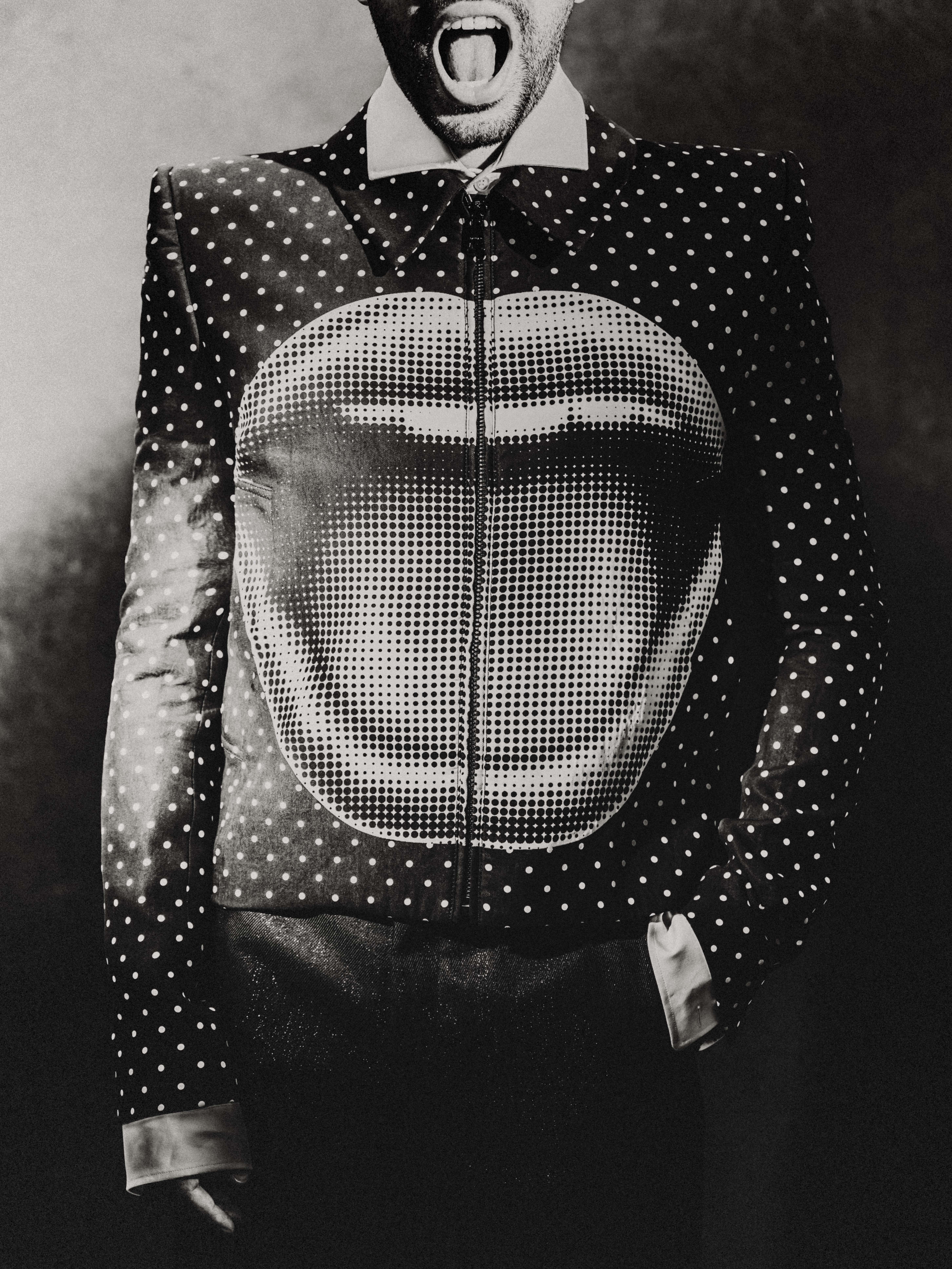
Sami, obviously, is all about a good story. On being typecast as an Arab or facing fewer opportunities than his peers, he reflects, “It’s sad sometimes because it’s shutting doors on things that I think I would do good at. But I also think I’m lucky for the time that I was born in and I’m growing up in because we can talk about these things and question them now. If a gate is closed because of my skin colour, I’m patient, and I know that time would make things up.”
He also feels a sense of duty in this regard.
“Part of my job is also to change that and make people realise that I can actually play anything, that I’m good enough for them to picture me in anything. There is still a lack of people of colour in our industry, but, looking back at how it was like before, I feel like we’re going on the right path.”
In many instances throughout our call, Sami conveys a certain optimistic outlook on life and an appreciation for the era we live in—one that many might perceive differently. Despite his deep investment in history, he embodies a very present-moment mindset. So much so that when I ask him how he’d describe this part of his life, he responds, “I’m not really a third-eye person. I’m not the kind of person that takes a step back to look at what they’re doing and tries to put words on it. I don’t really work like that. I just live.”
This intentional approach to mindfulness helps him when acting. “It’s way better for my job. Because if I think too much, which I have a bad tendency to do, I don’t feel the things in the present. I force myself to be in the present every day. If I’m overthinking everything in my life, switching when I’m filming would be quite hard. So I need like, it’s like a practice, you know? Yeah. Practising all year to be in the present so that when I’m on set, it’s easier.”
It’s no wonder that Sami has refined his approach to the craft over the years, considering he has pretty much all of his life to do so. His first time in front of the camera was at the age of 4 for a Disney ad—not an acting role, but a start nonetheless. He landed his first role when he was six. Ten years later, at 16, he realised that acting was where he truly belonged, noting that he didn’t feel well when he wasn’t on set. “Acting was the only thing I knew. I didn’t even consider it as something external to my life.”
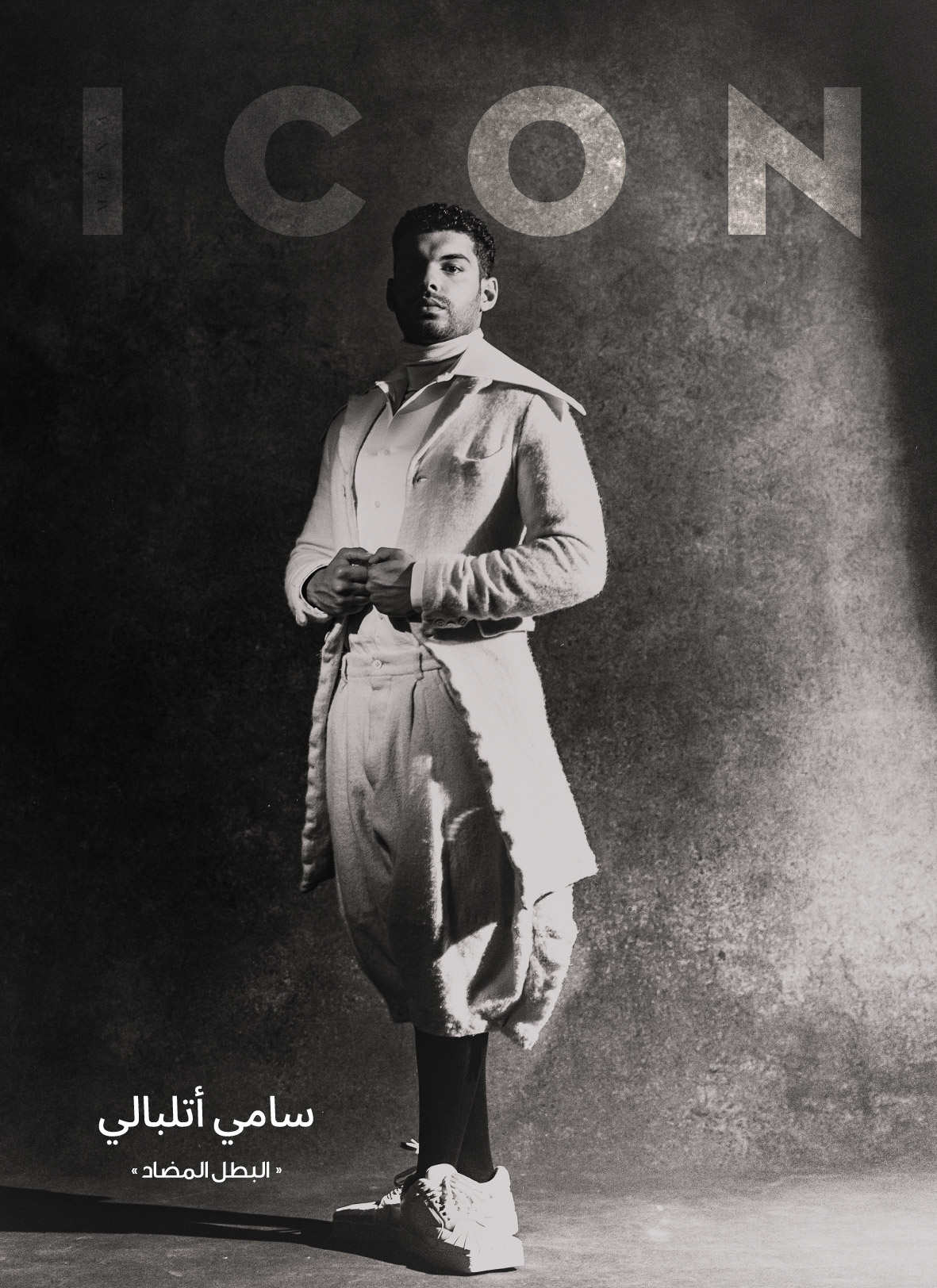
Despite his deep confidence in knowing what he wanted, Sami had a childhood filled with dreams of becoming many different things. “I wanted to be a basketball player,” he says, “but I’m shit at basketball,” he quickly retreats. “I wanted to have an automobile garage to do some tuning on cars. I wanted to be a quantum physics specialist. I wanted to be a historian. I wanted to do coding and cybersecurity. I wanted to do fashion.”
The cool thing about acting is that he gets to be all of these things—or at least pretend to be. He has the freedom to explore a wide array of characters and personalities. I ask him about the anti-hero character, given that it’s the theme of this issue.
“An anti-hero is sometimes way more human than a hero,” he states. “A hero could be an anti-hero in a second if people started to look at him that way. You look at a hero [as such] because you made him a hero. An anti-hero could just turn into a hero as quick as that.”
For his upcoming projects, Sami has lots of exciting stuff on the horizon, including an Amazon Prime original series called “Culte”. The show, set to premiere on October 18, delves into the behind-the-scenes drama of “Loft Story”, the first reality TV show in France and the controversy it sparked at the time. “[The show] changed the way we consume TV. For me, reality TV is the ancestor of social media because it was the first time we could actually see into people’s lives on a 24/7 basis.” He further adds that reality series can be “quite dangerous,” which is why he never watches them.
As our call comes to a close, I mention how I wish I spoke French. He, in turn, says he wishes he spoke Arabic. “One day, we’ll meet in the middle,” I say. He smiles and says: “Inshallah.”
SEE THE FULL PHOTO SHOOT WITH sami outalbali HERE.
Photography: Tarek Mawad
Fashion Direction: Qwan Anthony
Photo Assistant: Santi Hendrix
Fashion Assistant: Barnabé White
Grooming: Nafik Bouchareb
Communications Manager: Johana V. Dana
Production: Jean-Marc Mondelet
Words: Sami Abd Elbaki
Talent: Sami Outalbali
THIS FEATURE IS PUBLISHED IN ISSUE 03 OF ICON MENA PRINT MAGAZINE. ORDER YOUR COPY HERE.
TOP BANNER IMAGE: PATCH POCKET EMBROIDERED ROSE AND RAVEN JACKET IN COTTON, SHOP SIMILAR. ROSE AND RAVEN EMBROIDERED CARDIGAN IN WOOL, SHOP NOW. STRAIGHT LEG EMBROIDERED ROSE AND RAVEN TROUSER IN COTTON, SHOP NOW. STRIPE OXFORD ROSE SHIRT, SHOP NOW. LACE-UP DUCK BOOT IN LEATHER, SHOP NOW. CLASSIC TIE IN SCHOOL STRIPE MOGADOR, 4-BAR STRIPE, SHOP SIMILAR. SOCKS, SHOP NOW, THOM BROWNE. FAUX FUR ANIMALS SCARF WITH LEATHER DETAILS, XANDER ZHOU, SHOP NOW